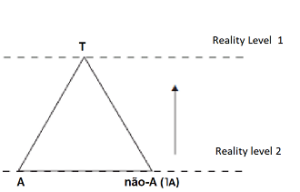
Arquivo para August 11th, 2022
Difference and identity in philosophy
The western philosophical system opposed difference and identity in different fields, only Leibniz tried to create something different that he called the Law of Identity of indiscernibles, while Kant, in the face of the objectivity of his thought, will say that all objects are different even if there are similarities, because they are in different places.
in different fields, only Leibniz tried to create something different that he called the Law of Identity of indiscernibles, while Kant, in the face of the objectivity of his thought, will say that all objects are different even if there are similarities, because they are in different places.
Modern structuralists and poststructuralists make a distinct unification, claim that difference is constitutive of meaning as much of identity, more bluntly, identity (and also personal identity) is seen in non-essentialist terms as a construct, because they only produce meaning through the interaction of differences.
But neither structuralism nor poststructuralism adequately resolves this issue, Derridá coined the term “différance”, a deliberate misspelling of différence the correct word in French, as a conceptual hook on processes of meaning in writing/language, this device intended for an essentialist ontology critique, and for its Being.
The neologism différance is thus defined as “the non-original, constituting a disruption of presence”, creating spaces, ruptures and postponing the presence of the presence of Being in its totality, since the word differ in French is both to defer and to postpone.
Someone could be confused with the quantum lapse, what the physicist Nicolescu Barsarab, using a principle of the included middle of Stéphane Lupasco, space between two “quanta”, but it is necessary to remember that neither space nor time are absolute measures in quantum physics. .
Dualism is the basis of many modern authoritarian theories, all of them under the influence of Kantian idealism and, to a certain extent, Aristotelian philosophy, where being is and non-being is not.
It justifies the exclusion of a third term, of something that is different and similar at the same time, it is an opening to “fundamentalist”, “racist” and “scientist” philosophies, origin of Manichaeism present in modern culture, in quotation marks because there is true faith and science.
Thus, for the ontology of the included middle, being is, not being is not, and a being that is not and is at the same time, the included middle T is possible.

